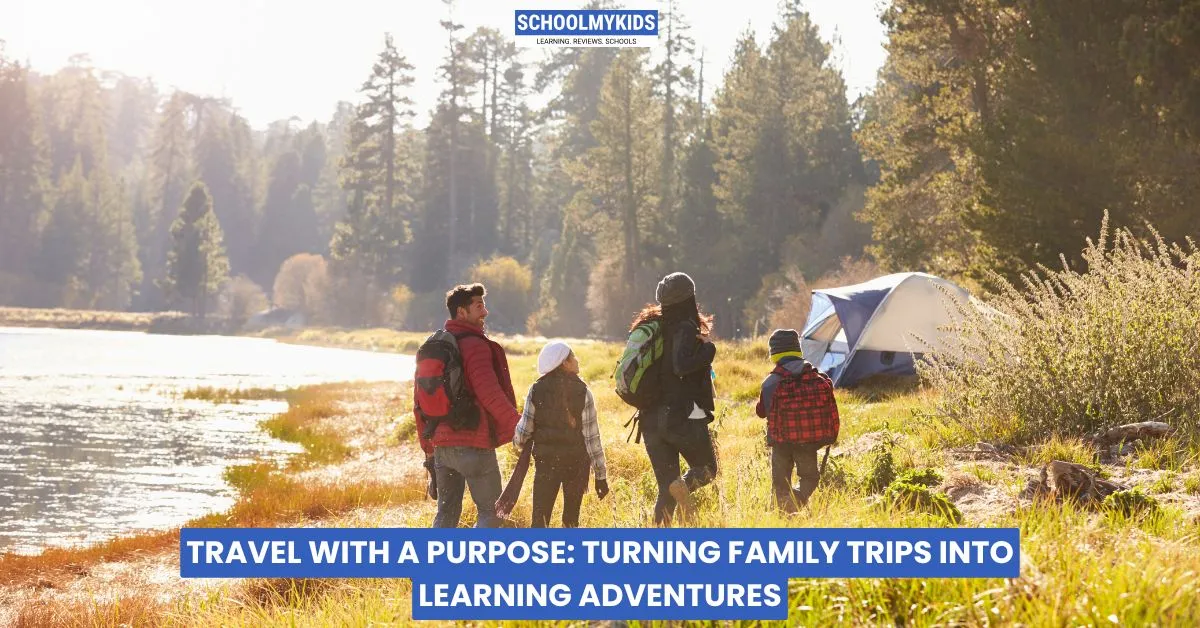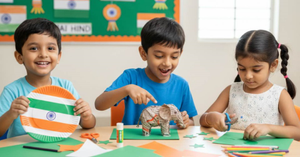Family vacations are not just about relaxation and sightseeing—they can be powerful learning experiences. With India's rich history, diverse culture, and vast natural landscapes, every trip offers unique opportunities for educational exploration. By incorporating learning into your travels, you can ensure that your children gain knowledge, develop curiosity, and create meaningful memories that last a lifetime.
This guide will help you turn your next family trip into an engaging learning adventure while balancing fun and education.
Why Educational Travel is Important?
Traveling exposes children to real-world applications of history, science, geography, and culture in ways that books and classrooms often cannot. In India, where every state offers something unique, an educational trip can help students:
- Understand history firsthand by visiting heritage sites and museums.
- Experience diverse cultures through festivals, languages, and traditions.
- Learn about biodiversity and conservation through national parks and ecological reserves.
- Develop problem-solving and adaptability skills by navigating new places.
With a thoughtful approach, every family vacation can become an enriching educational journey.
Choosing the Right Educational Destination in India
To make the most of an educational trip, it’s essential to align destinations with learning objectives. Here are some excellent locations based on different subjects:
1. History & Heritage Exploration
- Delhi & Agra: Explore Mughal history at the Red Fort, Qutub Minar, Humayun’s Tomb, and the Taj Mahal.
- Rajasthan: Visit Jaipur’s Amer Fort, Jodhpur’s Mehrangarh Fort, and Udaipur’s palaces to learn about Rajput history.
- Mysore & Hampi: Discover the grandeur of the Vijayanagara Empire through ruins and temples.
- Kolkata: Visit Victoria Memorial, Indian Museum, and Tagore’s House for colonial and literary history.
2. Science & Technology Learning
- Bangalore: Explore the Visvesvaraya Industrial & Technological Museum and ISRO’s space exhibits.
- Mumbai: Visit the Nehru Science Centre and Taraporewala Aquarium.
- Kolkata: Learn about space and physics at the Birla Industrial & Technological Museum.
- Ahmedabad: The Gujarat Science City offers interactive exhibits on energy, space, and robotics.
3. Environmental & Wildlife Exploration
- Jim Corbett National Park (Uttarakhand): Learn about tiger conservation and wildlife habitats.
- Sundarbans (West Bengal): Explore the world’s largest mangrove forest and its unique ecosystem.
- Kaziranga National Park (Assam): Understand conservation efforts for the Indian rhinoceros.
- Ranthambore National Park (Rajasthan): Witness majestic tigers in their natural habitat.
4. Cultural Immersion & Arts
- Varanasi: Experience the spiritual essence of India with Ganga Aarti and temple visits.
- Kerala: Learn about Kathakali, Ayurveda, and traditional boat-making.
- Tamil Nadu: Discover Dravidian temple architecture and Carnatic music traditions.
- Punjab: Visit the Golden Temple and learn about Sikh history and culture.
5. Geography & Adventure Learning
- Leh-Ladakh: Understand high-altitude geography, glacial formations, and Buddhist culture.
- Andaman & Nicobar Islands: Explore marine biodiversity, coral reefs, and India’s colonial history.
- Meghalaya: Learn about the world’s wettest place, root bridges, and limestone caves.
- Rann of Kutch: Discover the Great Indian Desert’s unique ecosystem and cultural heritage.
How to Make Your Family Trip Educational?
1. Plan with a Learning Focus
Before the trip, research the destination together as a family. Encourage children to:
- Read books or watch documentaries about the place.
- List down questions they want to answer during the trip.
- Keep a travel journal to document their experiences.
2. Engage in Interactive Learning
Learning should be immersive and fun. Here’s how to make it engaging:
- Take guided tours at historical sites and museums.
- Join local workshops such as pottery in Rajasthan, Madhubani painting in Bihar, or spice farming in Kerala.
- Visit science centers like ISRO in Bangalore or the National Rail Museum in Delhi.
- Attend cultural festivals like Pushkar Camel Fair, Durga Puja, or Hornbill Festival.
3. Use Technology for Learning
Make use of apps and digital tools to enhance the educational experience:
- Google Earth & Maps – Explore geographical features before visiting.
- Duolingo – Learn basic words from the local language.
- SkyView App – Identify constellations during stargazing trips.
- Indian Heritage Apps – Apps like INTACH Heritage Walks offer detailed information on historical sites.
4. Connect with Locals
Interacting with locals provides a deeper understanding of traditions, occupations, and lifestyle differences. Some ideas:
- Stay in homestays to experience authentic regional culture.
- Eat local food and learn about the culinary traditions of the area.
- Talk to artisans and learn about traditional crafts like Pashmina weaving or Banarasi silk-making.
5. Encourage Reflection & Sharing
After the trip, encourage children to:
- Write a travel essay or blog post about their favorite experiences.
- Create a photo or video story summarizing their learning.
- Present what they learned to friends or classmates.
Balancing Fun and Learning
While adding educational elements to travel is great, it’s important to maintain a balance so that the trip remains enjoyable. Some ways to do this include:
- Combining learning activities with recreational ones (e.g., after visiting a fort, go on a camel safari in Rajasthan).
- Keeping a flexible schedule to allow spontaneous discoveries.
- Turning learning into fun challenges, like treasure hunts at historical sites.
Conclusion: Learning Beyond the Classroom
Educational travel is one of the best ways to nurture a child’s curiosity, critical thinking, and cultural awareness. India’s diverse landscapes, rich heritage, and vibrant traditions make it an ideal place for turning vacations into learning adventures. By planning with intention, engaging in hands-on experiences, and encouraging reflection, parents can create meaningful trips that inspire lifelong learning.









Be the first one to comment on this story.